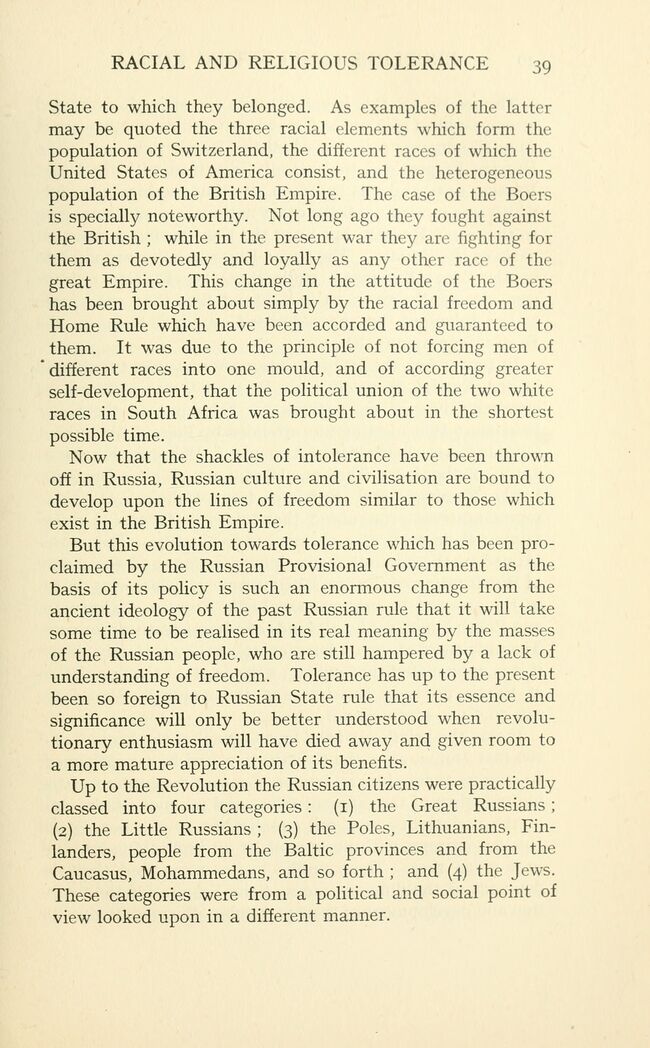
Full resolution (JPEG) - On this page / på denna sida - IV. Racial and religious tolerance

<< prev. page << föreg. sida << >> nästa sida >> next page >>
Below is the raw OCR text
from the above scanned image.
Do you see an error? Proofread the page now!
Här nedan syns maskintolkade texten från faksimilbilden ovan.
Ser du något fel? Korrekturläs sidan nu!
This page has never been proofread. / Denna sida har aldrig korrekturlästs.
RACIAL AND RELIGIOUS TOLERANCE 4i
State to which they belonged. As examples of the latter
may be quoted the three racial elements which form the
population of Switzerland, the different races of which the
United States of America consist, and the heterogeneous
population of the British Empire. The case of the Boers
is specially noteworthy. Not long ago they fought against
the British ; while in the present war they are fighting for
them as devotedly and loyally as any other race of the
great Empire. This change in the attitude of the Boers
has been brought about simply by the racial freedom and
Home Rule which have been accorded and guaranteed to
them. It was due to the principle of not forcing men of
different races into one mould, and of according greater
self-development, that the political union of the two white
races in South Africa was brought about in the shortest
possible time.
Now that the shackles of intolerance have been thrown
off in Russia, Russian culture and civilisation are bound to
develop upon the lines of freedom similar to those which
exist in the British Empire.
But this evolution towards tolerance which has been
proclaimed by the Russian Provisional Government as the
basis of its policy is such an enormous change from the
ancient ideology of the past Russian rule that it will take
some time to be realised in its real meaning by the masses
of the Russian people, who are still hampered by a lack of
understanding of freedom. Tolerance has up to the present
been so foreign to Russian State rule that its essence and
significance will only be better understood when
revolutionary enthusiasm will have died away and given room to
a more mature appreciation of its benefits.
Up to the Revolution the Russian citizens were practically
classed into four categories: (i) the Great Russians ;
(2) the Little Russians ; (3) the Poles, Lithuanians,
Fin-landers, people from the Baltic provinces and from the
Caucasus, Mohammedans, and so forth ; and (4) the Jews.
These categories were from a political and social point of
view looked upon in a different manner.
<< prev. page << föreg. sida << >> nästa sida >> next page >>